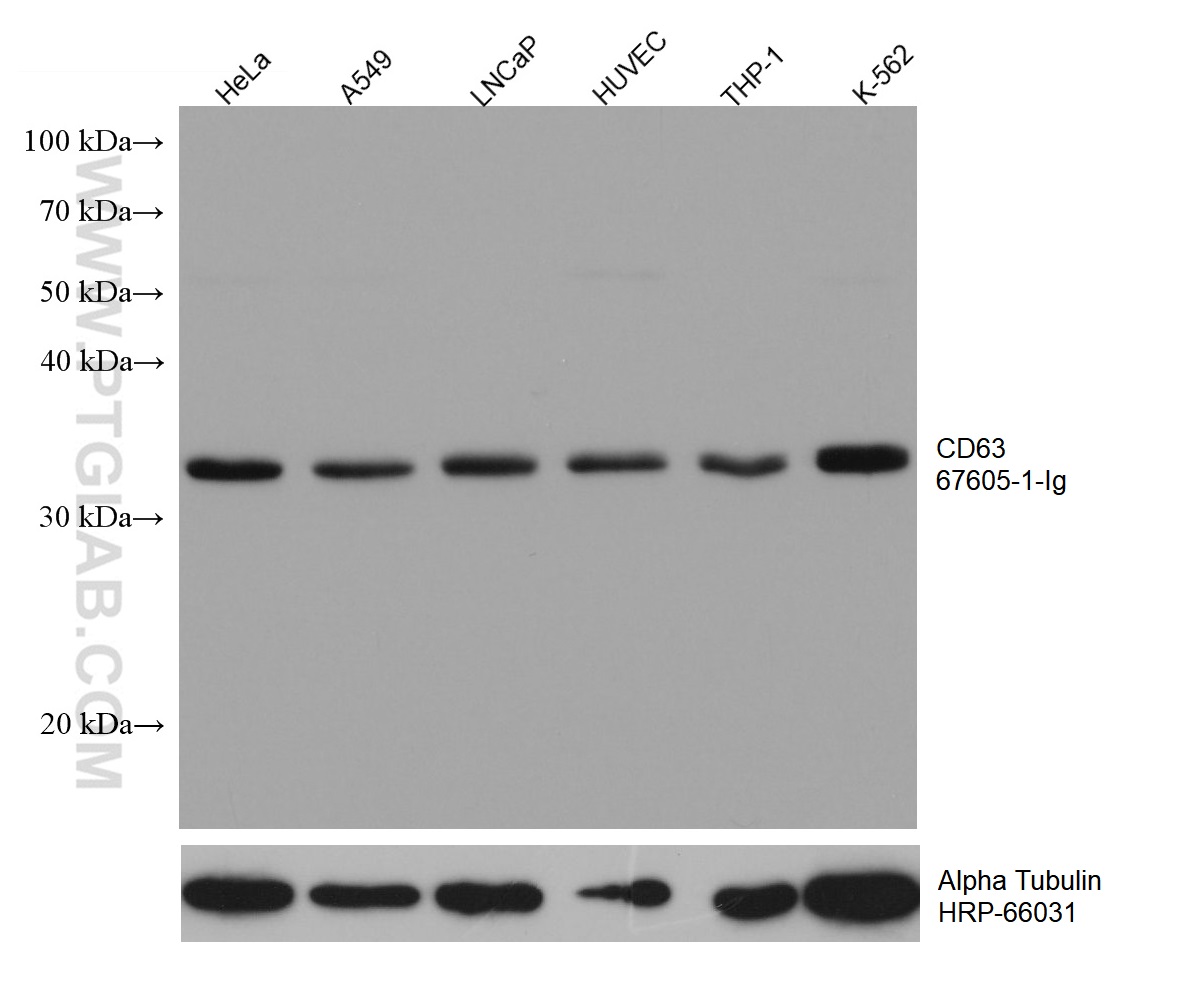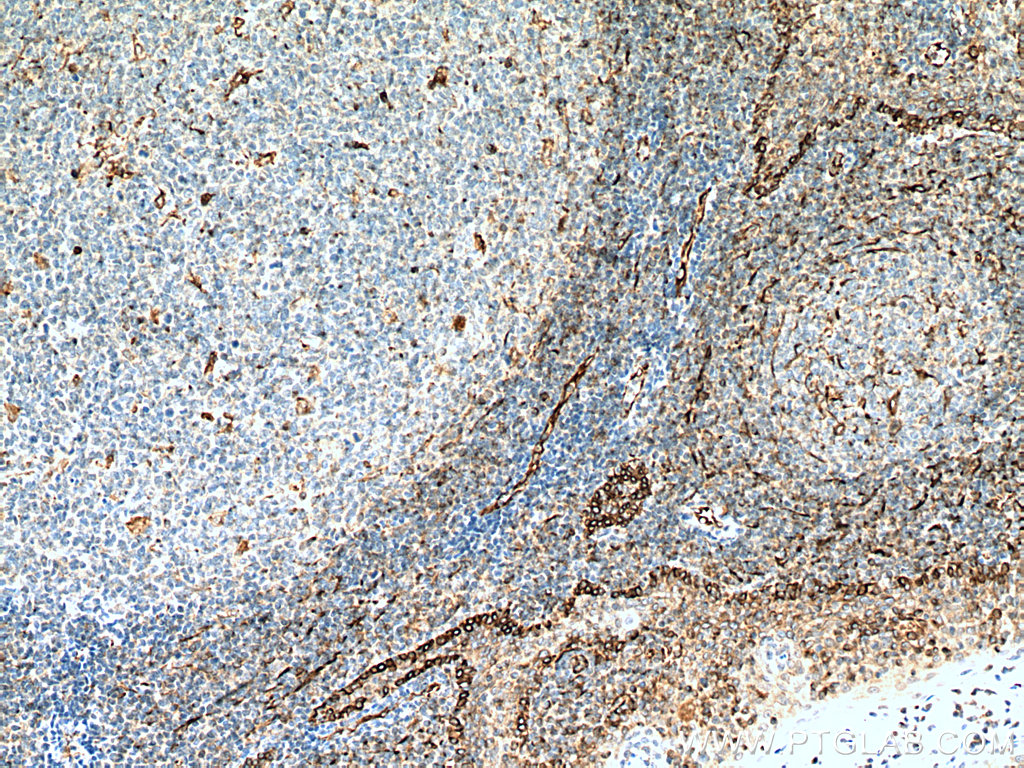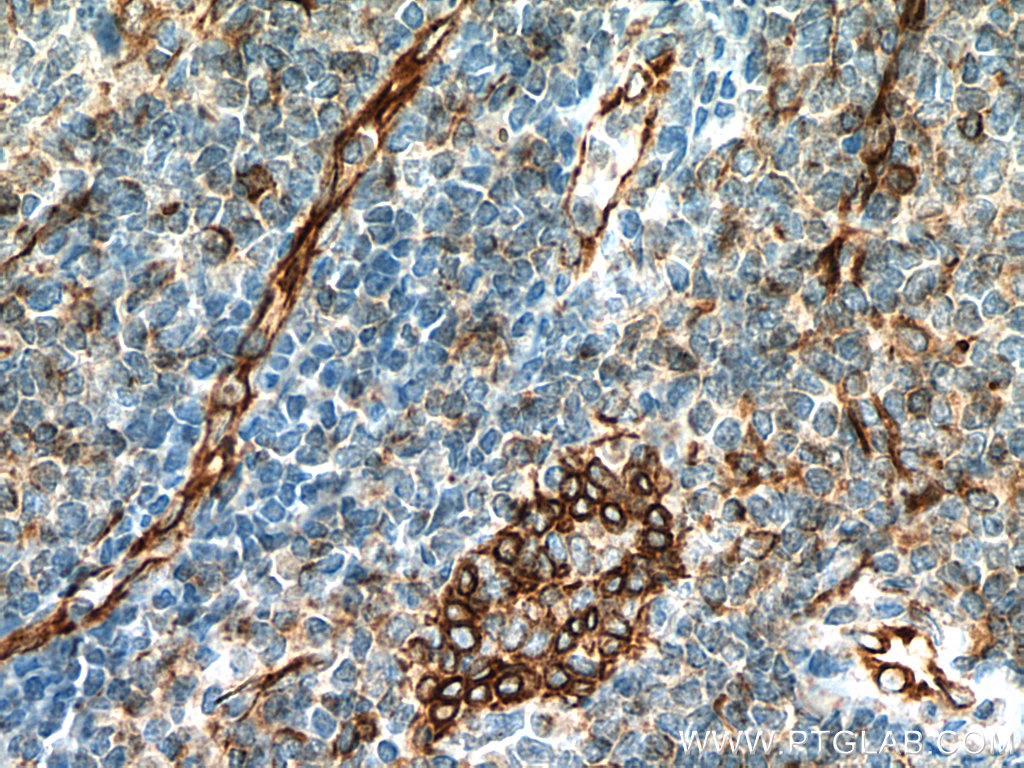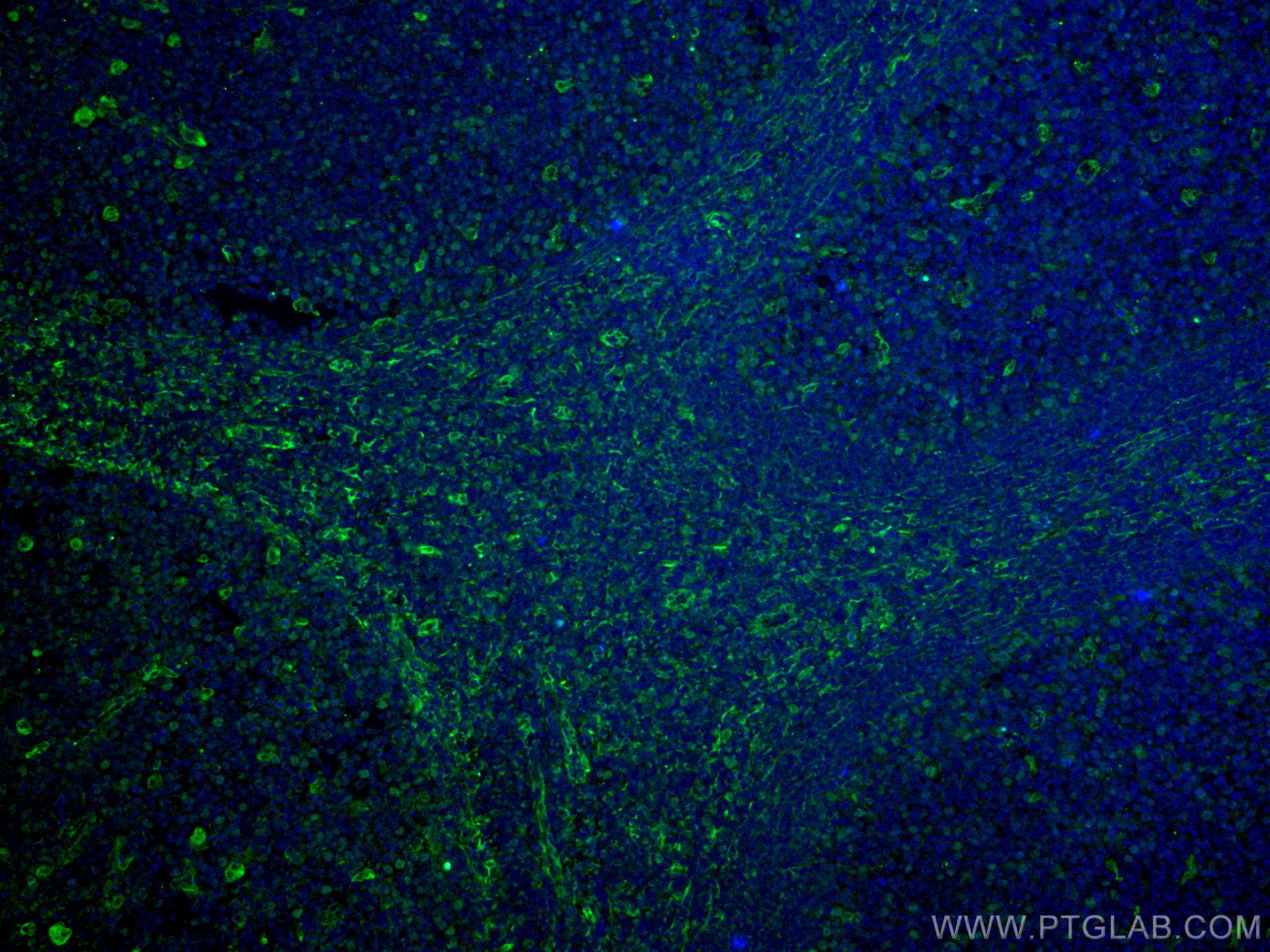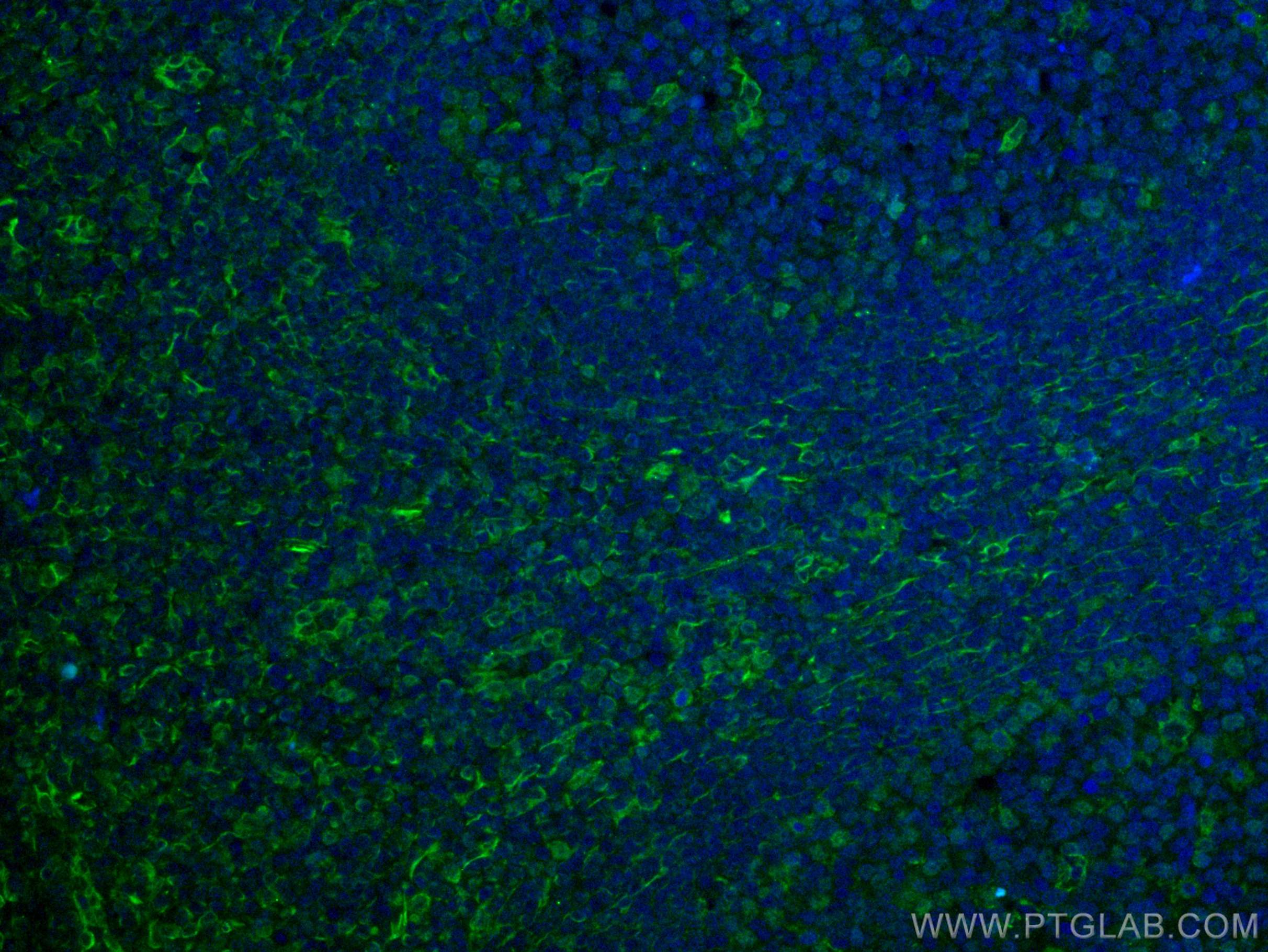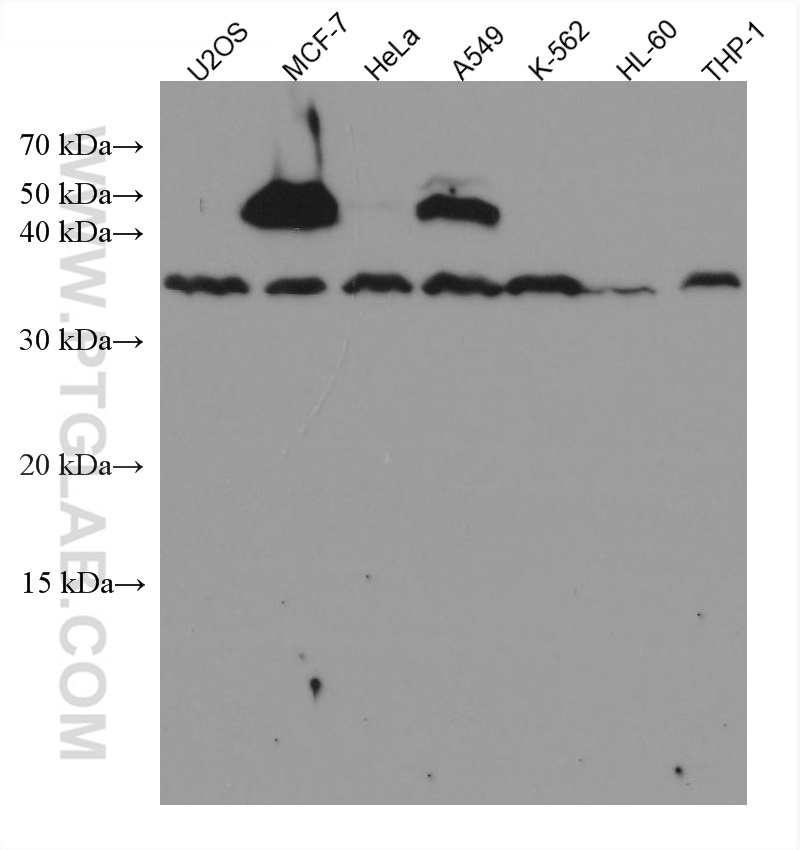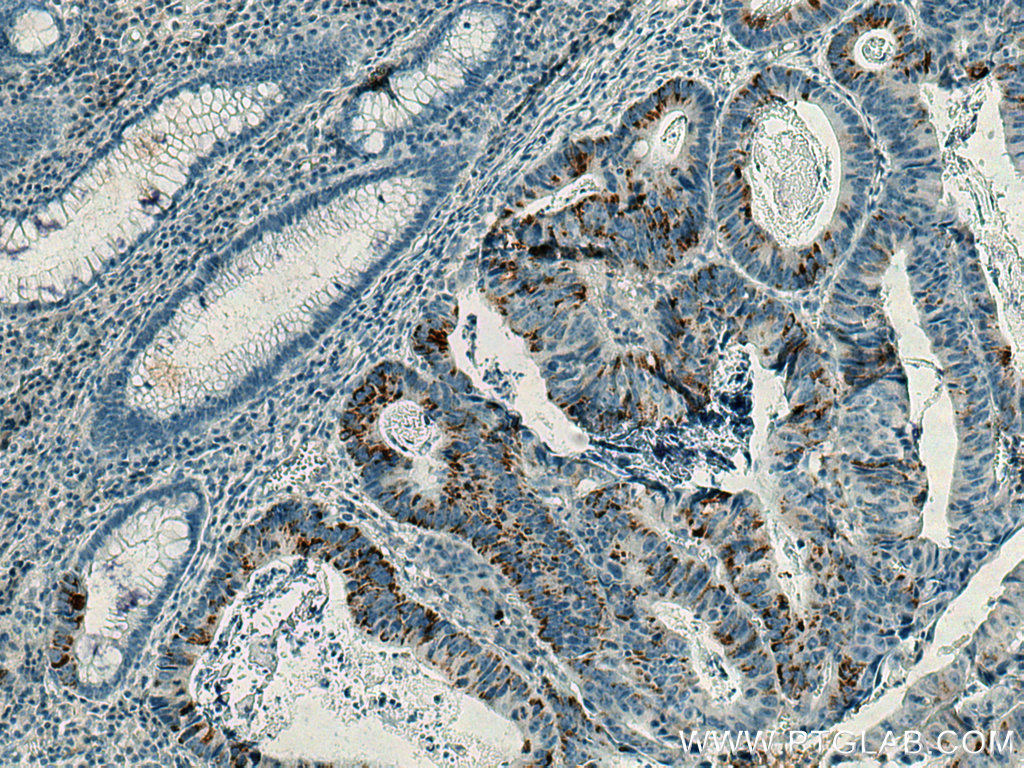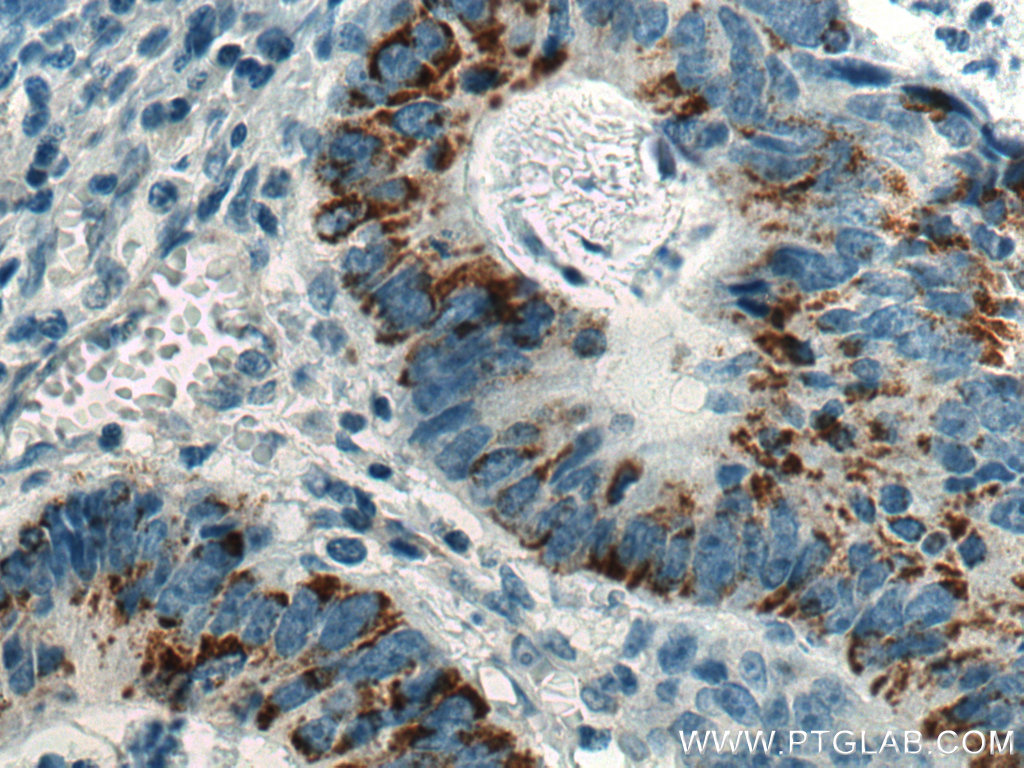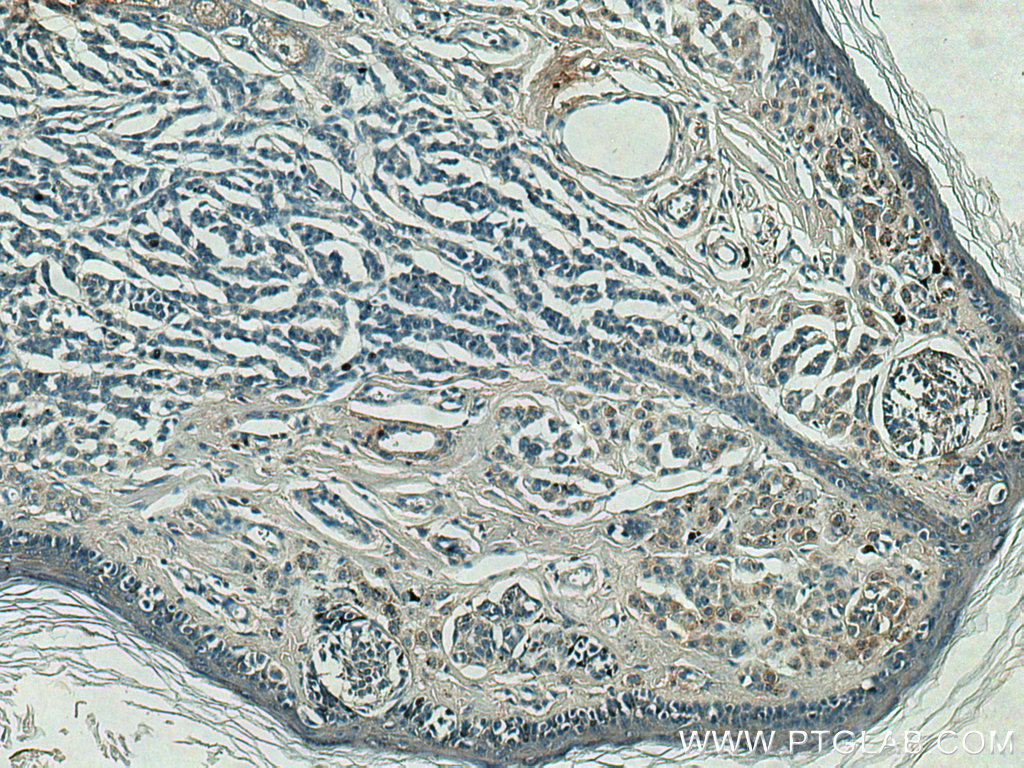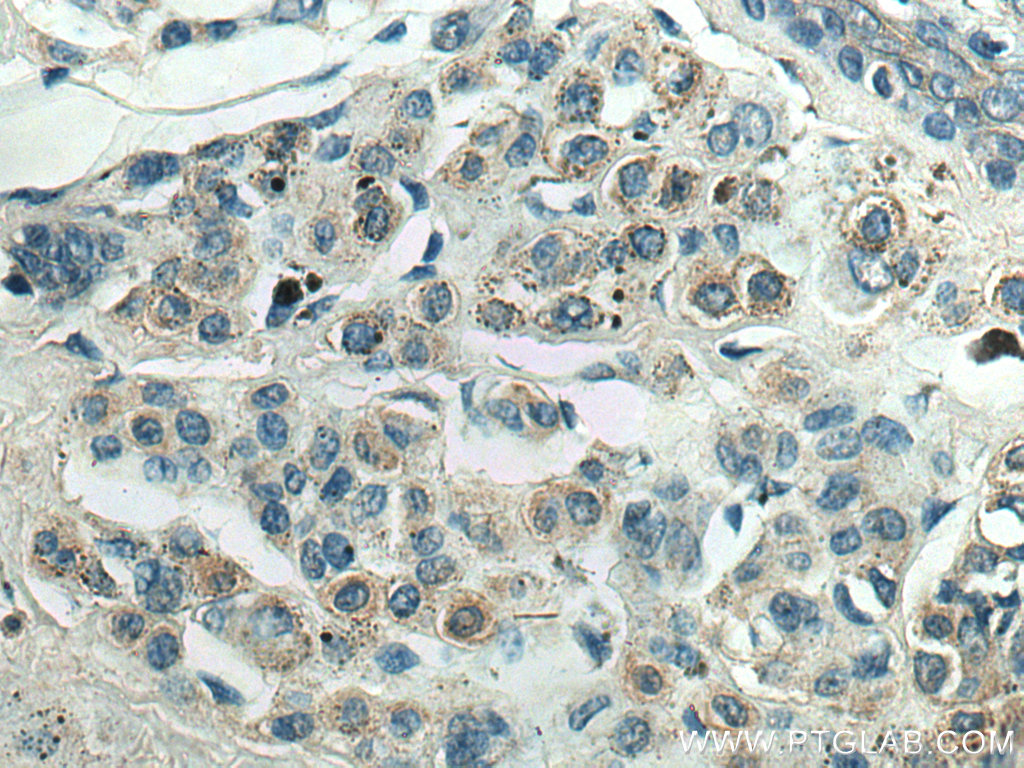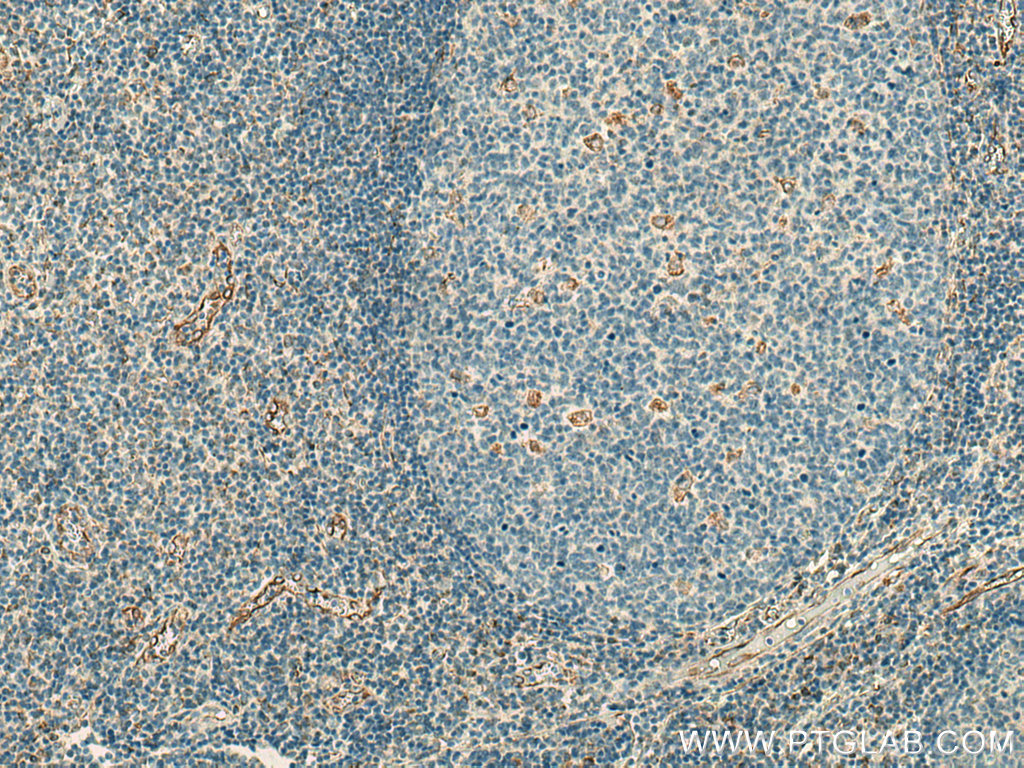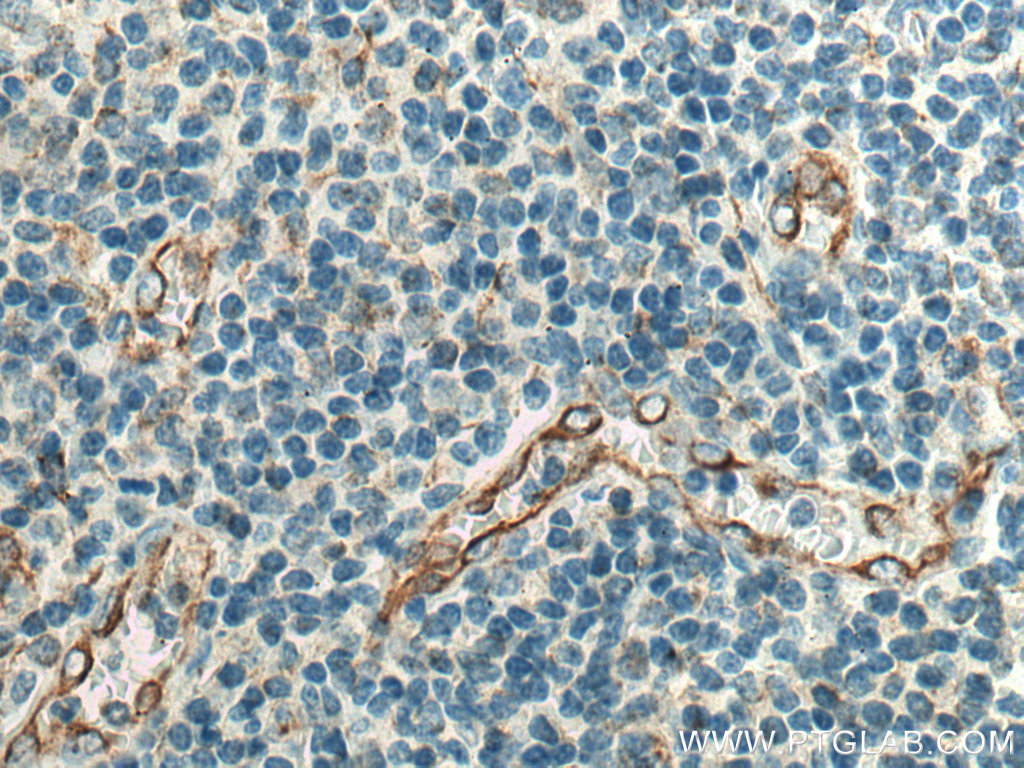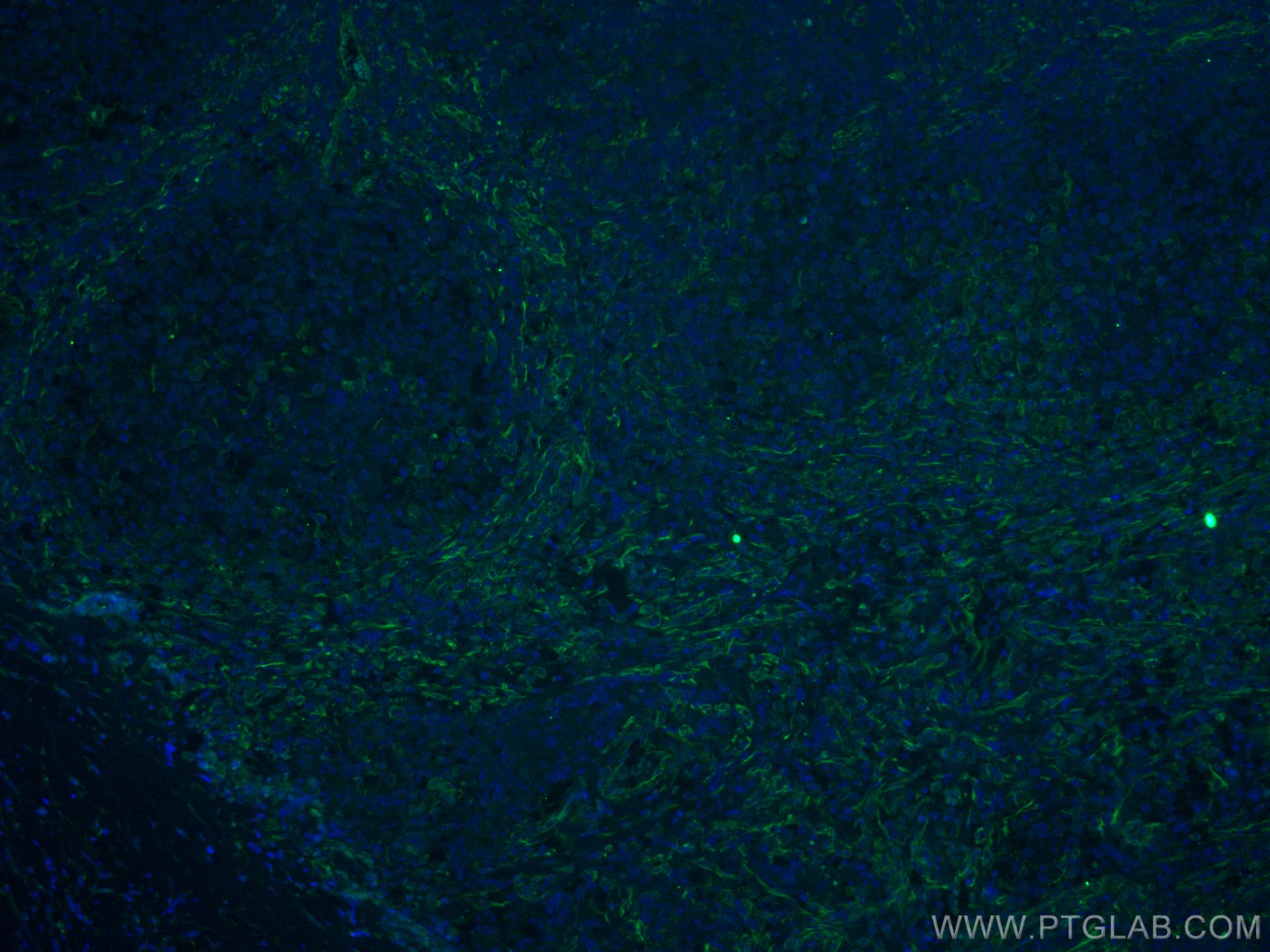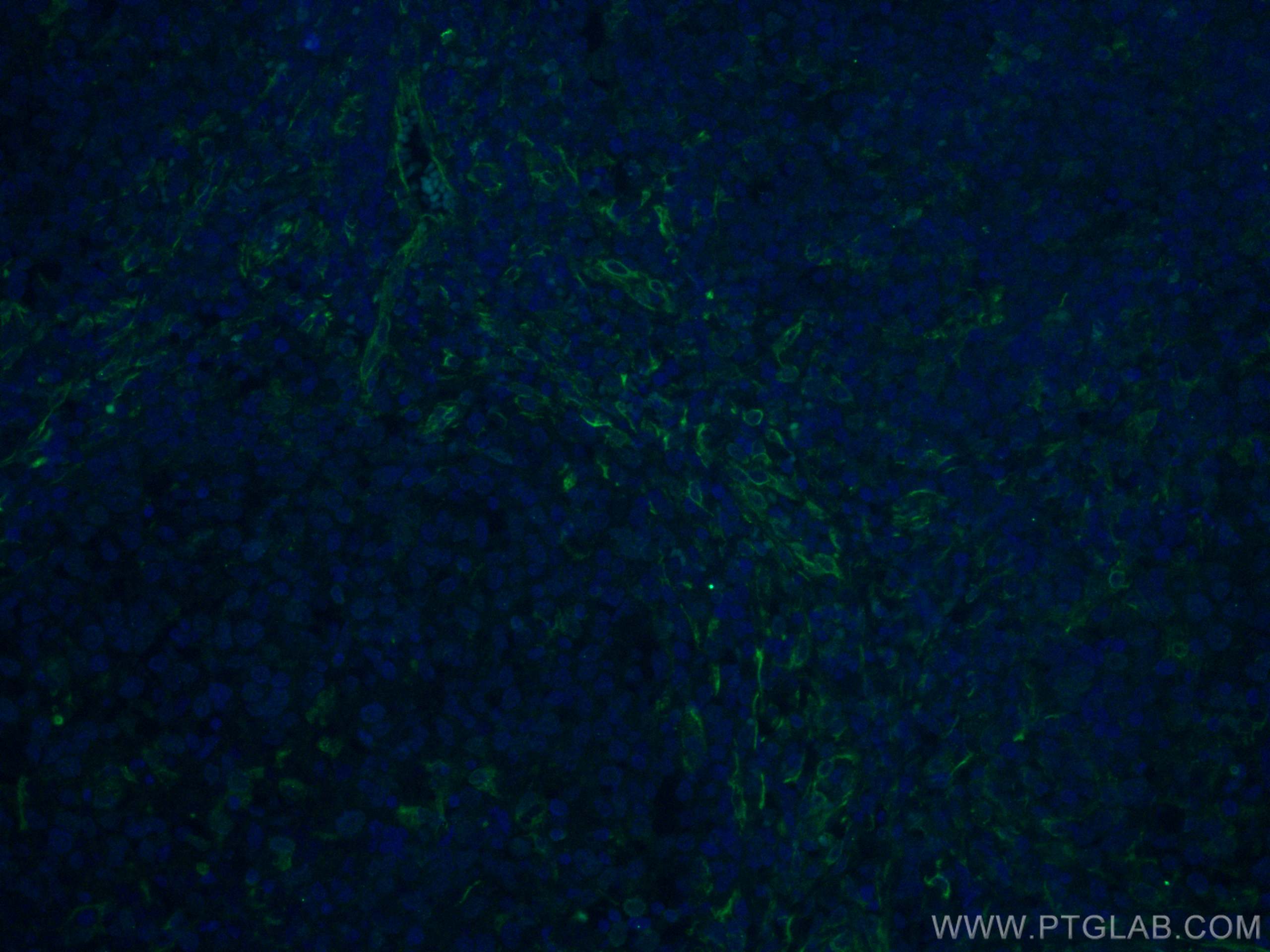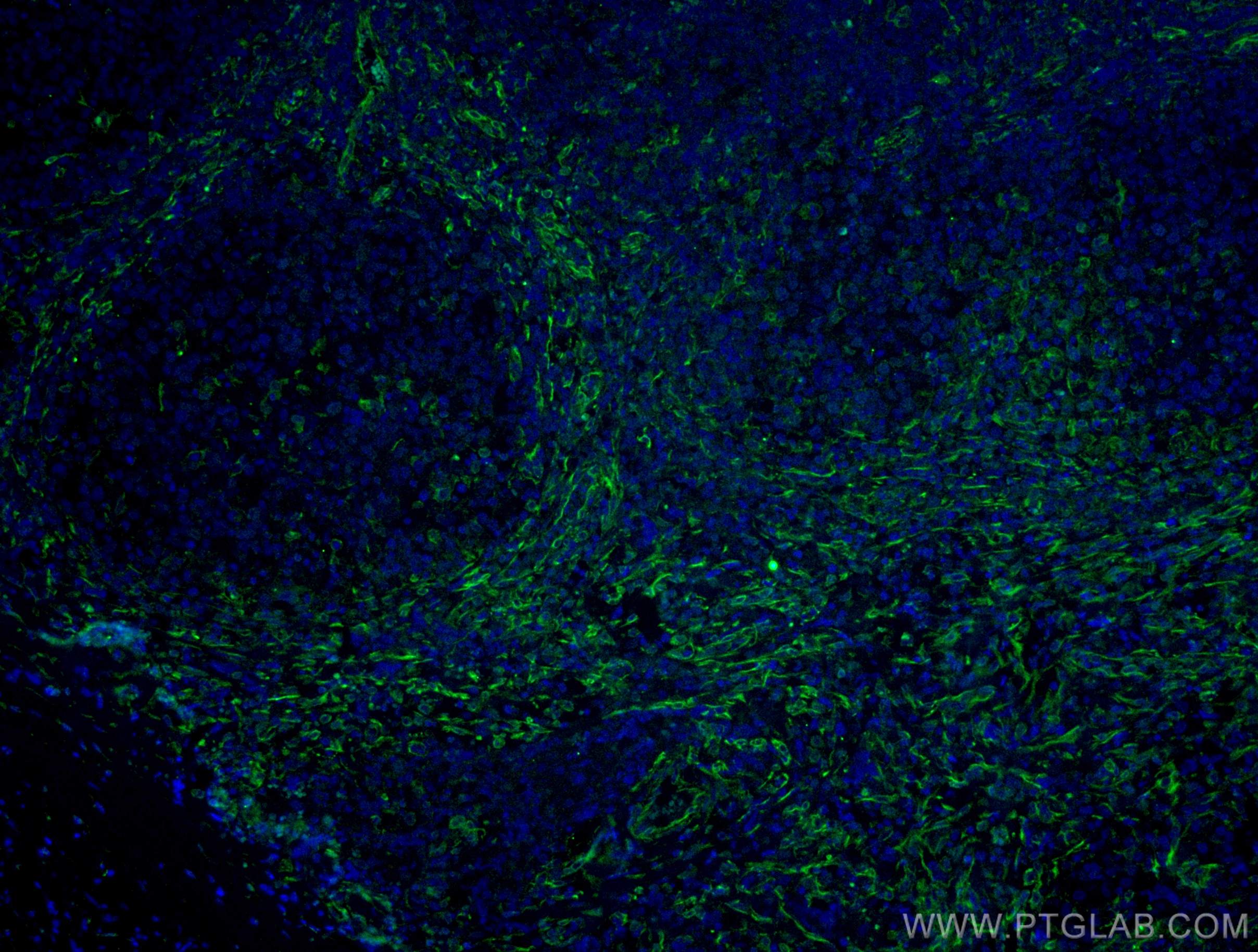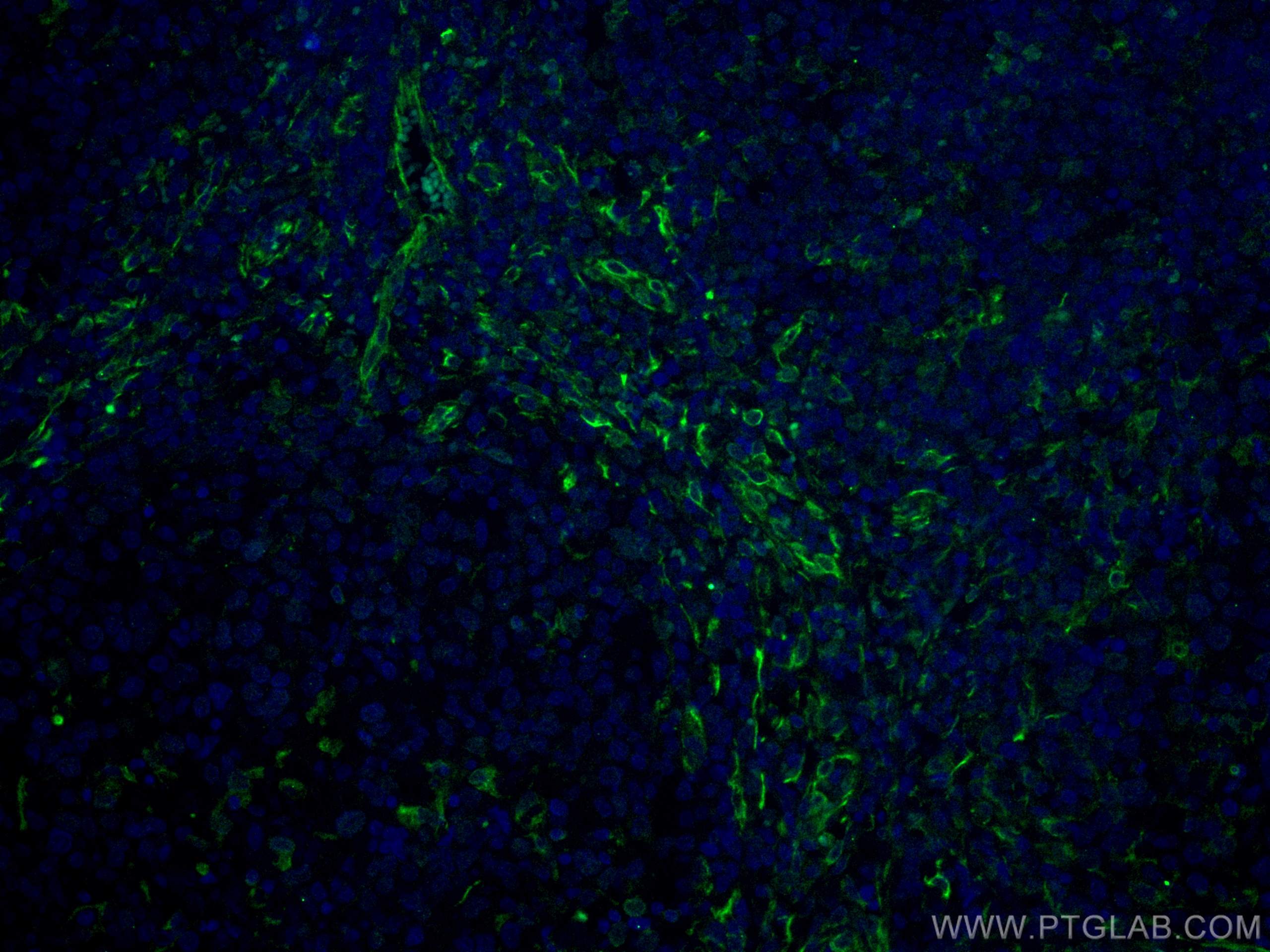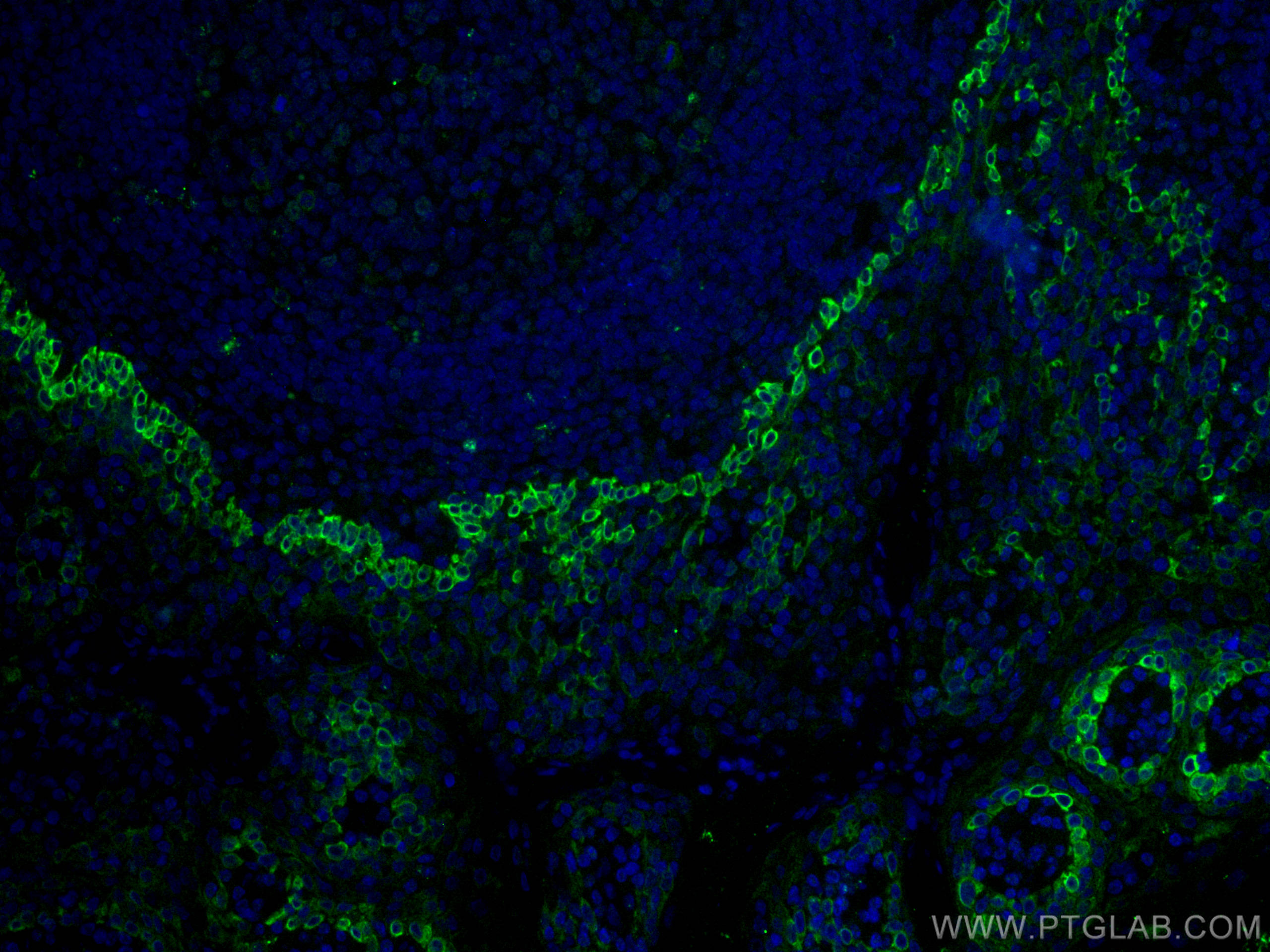验证数据展示
经过测试的应用
| Positive WB detected in | HeLa cells, U2OS cells, MCF-7 cells, A549 cells, K-562 cells, HL-60, THP-1 cells, LNCaP cells, HUVEC cells |
| Positive IHC detected in | human tonsillitis tissue, human malignant melanoma tissue, human colon cancer tissue Note: suggested antigen retrieval with TE buffer pH 9.0; (*) Alternatively, antigen retrieval may be performed with citrate buffer pH 6.0 |
| Positive IF-P detected in | human tonsillitis tissue, human malignant melanoma tissue, human lymphoma tissue |
推荐稀释比
| 应用 | 推荐稀释比 |
|---|---|
| Western Blot (WB) | WB : 1:5000-1:10000 |
| Immunohistochemistry (IHC) | IHC : 1:350-1:1400 |
| Immunofluorescence (IF)-P | IF-P : 1:200-1:800 |
| It is recommended that this reagent should be titrated in each testing system to obtain optimal results. | |
| Sample-dependent, Check data in validation data gallery. | |
产品信息
67605-1-Ig targets CD63 in WB, IHC, IF-P, ELISA applications and shows reactivity with human samples.
| 经测试应用 | WB, IHC, IF-P, ELISA Application Description |
| 文献引用应用 | WB, IF |
| 经测试反应性 | human |
| 文献引用反应性 | human, rat, goat |
| 免疫原 | CD63 fusion protein Ag19690 种属同源性预测 |
| 宿主/亚型 | Mouse / IgG1 |
| 抗体类别 | Monoclonal |
| 产品类型 | Antibody |
| 全称 | CD63 molecule |
| 别名 | Lysosome integral membrane protein 1, Lysosomal-associated membrane protein 3, Limp1, CD63 antigen, CD 63 |
| 计算分子量 | 26 kDa |
| 观测分子量 | 35 kDa |
| GenBank蛋白编号 | BC002349 |
| 基因名称 | CD63 |
| Gene ID (NCBI) | 967 |
| RRID | AB_2882811 |
| 偶联类型 | Unconjugated |
| 形式 | Liquid |
| 纯化方式 | Protein A purification |
| UNIPROT ID | P08962 |
| 储存缓冲液 | PBS with 0.02% sodium azide and 50% glycerol pH 7.3. |
| 储存条件 | Store at -20°C. Stable for one year after shipment. Aliquoting is unnecessary for -20oC storage. |
背景介绍
CD63 is a 30-60 kDa lysosomal membrane protein that belongs to the tetraspanin family. This protein plays many important roles in immuno-physiological functions. It mediate signal transduction events that play a role in the regulation of cell development, activation and motility. CD63 is expressed on activated platelets, thus it may function as a blood platelet activation marker. CD63 is a lysosomal membrane glycoprotein that is translocated to plasma membrane after platelet activation. The CD63 tetraspanin is highly expressed in the early stages of melanoma and decreases in advanced lesions, suggesting it as a possible suppressor of tumor progression. Deficiency of this protein is associated with Hermansky-Pudlak syndrome.
实验方案
| Product Specific Protocols | |
|---|---|
| WB protocol for CD63 antibody 67605-1-Ig | Download protocol |
| IHC protocol for CD63 antibody 67605-1-Ig | Download protocol |
| IF protocol for CD63 antibody 67605-1-Ig | Download protocol |
| Standard Protocols | |
|---|---|
| Click here to view our Standard Protocols |
发表文章
| Species | Application | Title |
|---|---|---|
Mol Cancer Exosomal circ_0006896 promotes AML progression via interaction with HDAC1 and restriction of antitumor immunity | ||
Cell Metab Nicotinamide metabolism face-off between macrophages and fibroblasts manipulates the microenvironment in gastric cancer | ||
Nat Commun Lactate dehydrogenase A regulates tumor-macrophage symbiosis to promote glioblastoma progression | ||
Bone Res Interorgan communication in neurogenic heterotopic ossification: the role of brain-derived extracellular vesicles | ||
Drug Des Devel Ther Keloid Patient Plasma-Derived Exosomal hsa_circ_0020792 Promotes Normal Skin Fibroblasts Proliferation, Migration, and Fibrogenesis via Modulating miR-193a-5p and Activating TGF-β1/Smad2/3 Signaling | ||
Oxid Med Cell Longev Adipose-Derived Circulating Exosomes Promote Protection of the Pulmonary Endothelial Barrier by Inhibiting EndMT and Oxidative Stress through Down-Regulation of the TGF-β Pathway: A Potential Explanation for the Obesity Paradox in ARDS. |
